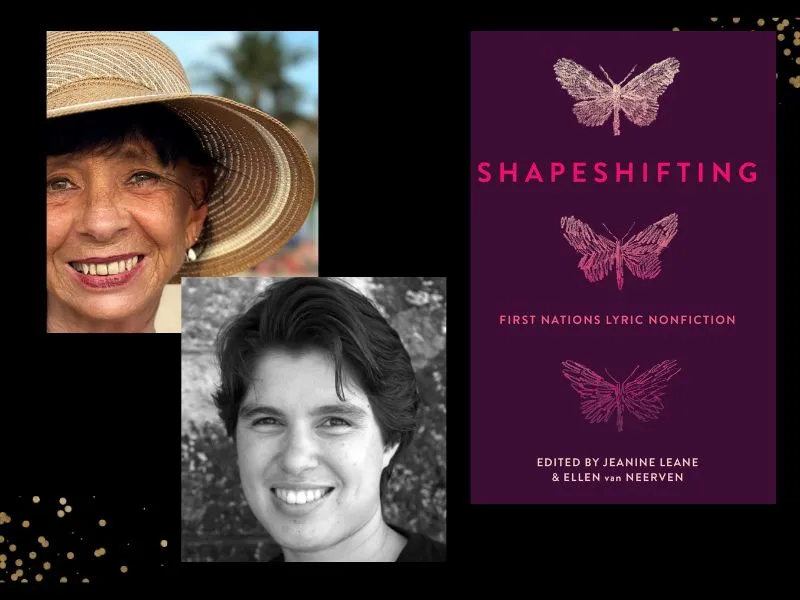A powerful collection of lyric essays reshaping storytelling to reflect First Nations culture and history.
Unravelling the ways colonial history shapes the present can be daunting. One powerful approach is through storytelling. This is one of the overarching messages of Shapeshifting: First Nations Lyric Nonfiction, a collection co-edited by Jeanine Leane and Ellen van Neerven. This book offers a remarkable array of lyric essays that reshape conventions of storytelling to reflect Indigenous culture, tradition and wisdom. The 15 essays traverse the boundaries between biography and academia, creating illuminating reflections on what it means to be a First Nations person in present-day ‘so-called’ Australia.
The essays explore diverse topics, from the definition of the queer Indigenous self and the social dynamics of a brown, bigger body to what it means to be free or to be at home in Australia. The realities captured in Shapeshifting are vibrant, fierce, yet tender and vulnerable. The strength of these stories is in their tenderness, in so much as the collection comes to embody a sacred space for learning and attempted healing.
The book overarchingly takes on a deeply personal and engulfing tone, like a collection of letters addressed directly to the reader. Every essay, in one way or another, grapples with violent pasts and the battle to not internalise this violence in self-perception, shame or social projection. These conversations form beautiful and poignant images of the (post) colonial realities that the writers face.
Throughout Shapeshifting, the legacy of colonial structures and their violence is palpable. This is evident in the references to spaces, institutions and discourses bearing colonial influence. For example, “the Catholic church wants to educate smart Blakfellas in whitefella ways,” writes Leane, “the office meant I could keep my skin on and still find time to write” points out Timmah Ball and “the state did a number on us,” argues Natalie Harkin.
Such colonial influence is embedded in the present day attempts to trace history and connect with ancestors. As Charmaine Papertalk Green writes, “The colonial archives were never created for Yamaji people. They were a racist colonial tool to control and manage Yamaji.” The pain reverberates through time and through the amalgamated stories in this collection to reveal many faces of the ongoing struggles of First Nations injustice.
At times, writers also engage in introspective critiques of Indigenous practices and institutions, such as the cultural norms of not naming the deceased and the silences that ring loudly in instances of familial trauma. This adds another dimension to storytelling and cultural preservation as “silence talks and can tell us many things,” Green continues. The absence of stories as historical documentation and cultural embodiment represents a significant loss. This too forms a strength and function of this powerful essay collection that both names the silence and breaks it.
Shapeshifting bears cathartic discussions between dualities: lightness and darkness, inner thoughts and lived experience, the past and the present, life and grief. The vivid imagery and unassuming everyday realities make these vignettes so refreshingly human and relatable. Yet, the gravity of discussions of trauma grounds these stories in profound poignancy and struggle. The collection captures the beauty and grit of daily life, interwoven with the pervasive currents of colonial violence in Australia and beyond, which make this such an urgent, deeply affecting and full-bodied written work. It is a significant contribution to contemporary literature and traditions of storytelling, defiantly illustrating “the act of being through telling and writing”.
Shapeshifting: First Nations Lyric Nonfiction, Edited by Jeanine Leane and Ellen van Neerven
Publisher: UQP
ISBN: 9780702268366
Format: paperback
Pages: 288pp
Price: $34.99
Publication Date: 1 October 2024
First published by ArtsHub on October 23, 2024. This article has been commissioned in partnership with Artshub for Diversity Arts Australia’s StoryCasters project, supported by Multicultural NSW, Creative Australia and Create NSW.

